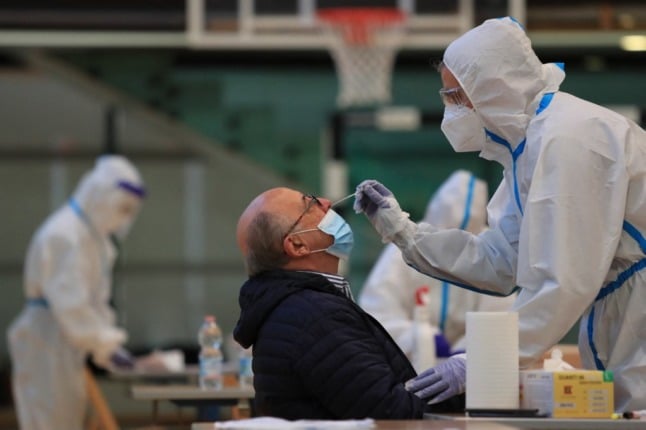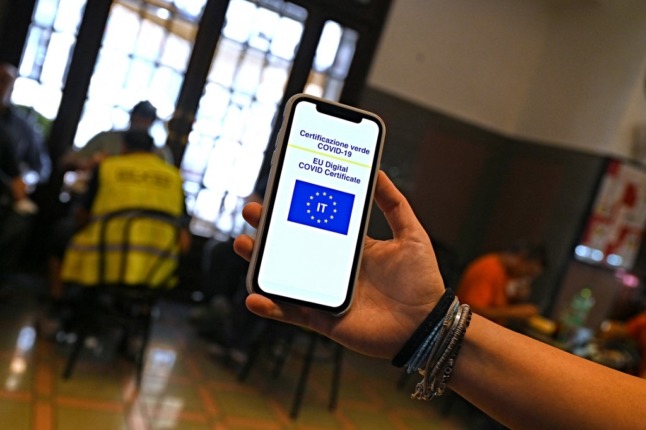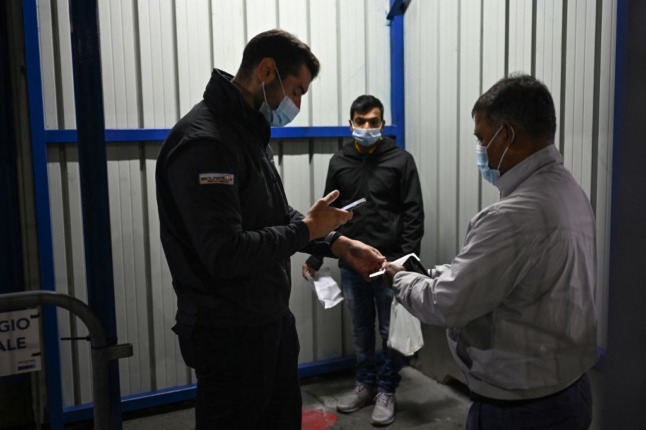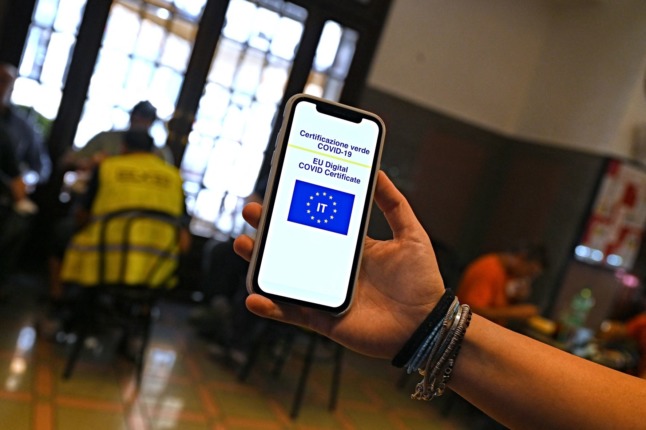Italy is looking at making it a requirement for employees to show proof of vaccination, testing or recovery at workplaces including public offices and supermarkets under new plans to further expand the certificazione verde or ‘green pass’ scheme.
Q&A: Your questions answered about Italy’s new Covid health pass
According to reports in Italian financial newspaper Il Sole 24 Ore, Deputy Health Minister Andrea Costa said the ‘green pass’ should be made compulsory for staff “where the continuity of a service must be guaranteed, for example local public transport operators, employees of supermarkets and essential services, or those that have been operational during lockdown.”
“Employees of municipal and public offices will also have to return to normality, and in presence,” he added.
“They have a responsibility to guarantee a service to the country in contact with the public. It is not acceptable that in some areas they are still closed or staff are working remotely.”
The digital pass has been required since August 6th in order to enter many cultural and leisure venues across Italy, including museums, theatres, gyms, and indoor seating in restaurants.
From September 1st the digital pass will be a requirement for teachers and other school staff, while healthcare workers in Italy are legally required to be fully vaccinated.

Italy passed a law in April obliging anyone working in public or private social health positions, including in pharmacies and doctors’ offices, to get vaccinated against Covid-19 or be suspended without pay, unless their employer can reassign them to a less sensitive position.
Following the health ministry’s suggestion this week of making the green pass a requirement for employees across more sectors, several prominent politicians as well as trade union leaders in Italy voiced support for the idea.
Discussions about further expanding the scheme are in the early stages, and no date has been suggested for any changes to come into force.
The Italian government had considered making the pass a requirement in more workplaces from September 1st, but a decision on this was delayed.
Plans to expand the use of the green pass to everyday venues and workplaces have previously faced criticism from some health experts who point out that many people face long waits for vaccination appointments, while testing is usually not available free of charge.
OPINION: Covid passports are Italy’s only choice – but they must be a right, not a privilege
Many people who have been vaccinated in Italy are also reporting that they are unable to access their passes due to missing access codes and other technical and bureaucratic problems.
Italian Prime Minister Mario Draghi has said the use of the green pass scheme is the only alternative to a new lockdown, while ministers also hope the expansion of the scheme will help Italy reach the target of vaccinating everyone over the age of 12 by the end of September – a goal that has become more distant with a significant recent slowdown in the vaccination rate.
The number of vaccine doses administered in Italy has been around 200,000 a day on average since August 16th – less than half the daily figure recorded a month earlier.
The current number is the lowest Italy has seen since mid-March this year, when the vaccination effort was repeatedly hindered by delays and supply issues.
Only around 13 percent of the Italian population aged over 12 has not yet been vaccinated, newspaper Il Corriere della Sera reports.
Find the latest updates in our green pass news section and further details on the official website (currently only available in Italian).
For more information about the current coronavirus situation and health measures in Italy please see the Health Ministry’s website (in English).




 Please whitelist us to continue reading.
Please whitelist us to continue reading.
Member comments